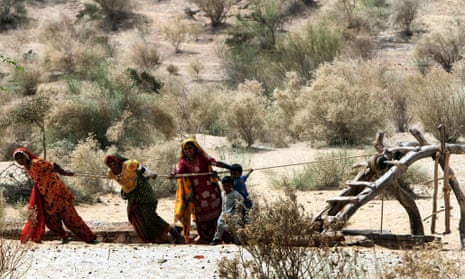The dramatic spike in resource use over the last two decades, particularly in the emerging economies of Brazil, Russia, India and China, has exacerbated the threat of resource scarcity. And the world’s failure to curb emissions of greenhouse gases means that the impacts of climate change will be felt strongly across food, water and energy – the three dimensions of the "nexus".
It is unsurprising there are increasing calls for innovative ways of approaching these problems. In recent years, the nexus approach has attracted significant interest from international organisations, the private sector and other global players as a way of tackling the interdependencies between water, energy and food security.
The urgent need for joined up approaches to policy and practice lies at the heart of nexus thinking. It’s an approach which applies at all levels of society; from local competition over access to water for irrigation or livestock, to global connections between policy on biofuels, food and water security.
Sometimes there are synergies, where changes in one area lead to improvements in another. More often, the trade-offs are negative: for example, the increased use of fertilisers to enhance food production leading to higher energy use and greenhouse gas emissions, and pollution of surface and underground water. Such trade-offs are often poorly understood, unanticipated or overlooked.
The nexus approach has gained momentum over the past five years and has been the focus of a number of international conferences, including the Bonn 2011 Nexus Conference and a Nexus 2014 conference hosted by the Water Institute at the University of North Carolina in March 2014. The most recent report of Working Group II of the Intergovernmental Panel on Climate Change features the "Water-Energy-Food/Feed/Fibre Nexus as Linked to Climate Change" as a cross-chapter theme. And the nexus features in proposals for the post-2015 Sustainable Development Goals (for example, the "integrating approach" advocated by the Colombian government), which are currently being debated by the UN.
The importance of the nexus is also increasingly recognised by the private sector. Joined up approaches by business can result in increased efficiency, for example by turning waste outputs from food production into useful inputs to energy generation (creating a "circular economy").
Complex global supply chains require increasingly sophisticated risk management approaches, and nexus thinking is compatible with the way many businesses now approach corporate social responsibility and sustainability. Large oil and gas companies have long talked of the "resource trilemma" and Shell includes the "stress nexus" in its most recent planning scenarios. The brewing giant SABMiller is attempting to make business decisions through a resource nexus lens, and recently highlighted, through a valuation study of malting barley in Rajasthan, the need for better approaches to handling trade-offs between water, energy and food and the company.
In its 2011 report on the nexus, the World Economic Forum argues that “Any strategy that focuses on one part of the water-food-energy nexus without considering its interconnections risks serious unintended consequences.” But despite growing enthusiasm for nexus approaches, uptake and implementation face considerable obstacles. Tools and approaches for operationalising the nexus at different scales require development and testing. There is uncertainty about what a "successful" nexus approach looks like in practice, and how it can be achieved and evaluated.
These are similar to the implementation challenges faced by other approaches, such as sustainable development and integrated water resources management, which have often failed to deliver in practice. Obstacles to nexus integration include siloed government departments, sector-based agencies that complicate coordination, restrictive funding mechanisms, legislative and regulatory barriers. A recent example of a more integrated approach in the UK is the creation of the Office of Unconventional Gas and Oil, within the Department of Energy and Climate Change, which aims to coordinate the various government bodies that will oversee future development of shale gas and oil.
So where is the nexus agenda leading? How can it become more than another interesting but unrealised buzzword? A pragmatic and practical agenda is required. Perhaps what makes the nexus different to earlier calls for integrated thinking, and the reason it has gained such momentum, is the magnitude of resource use and rate of global environmental change. Society can no longer ignore the fact that the resource challenges we face are highly interconnected. Business as usual is no longer sustainable; radical change and new thinking are required.
Michael Bradshaw is professor of global energy at Warwick Business School and author of ‘Global Energy Dilemmas’ (Polity Press, 2014). Declan Conway is professorial fellow at the Grantham Research Institute for Climate Change and the Environment, and works on climate change adaptation in developing countries. Hayley Leck is a post-doctoral researcher at the Grantham Research Institute for Climate Change and the Environment, where she works on the institutional and social dimensions of climate change adaptation.

Comments (…)
Sign in or create your Guardian account to join the discussion